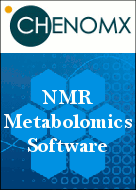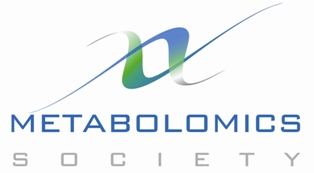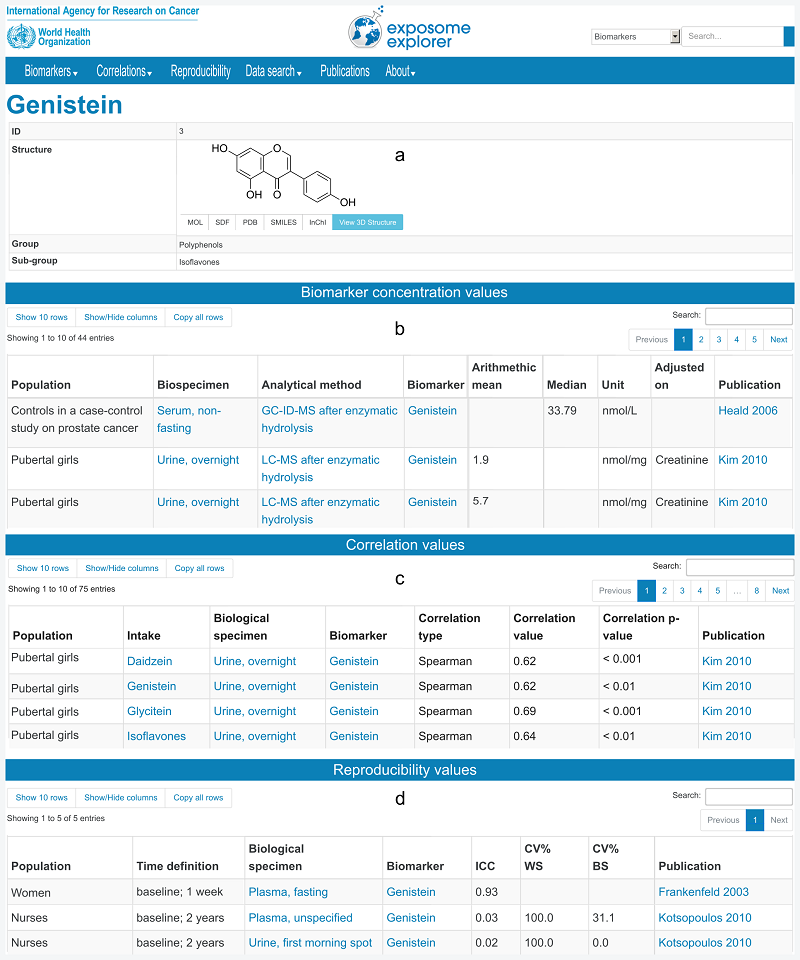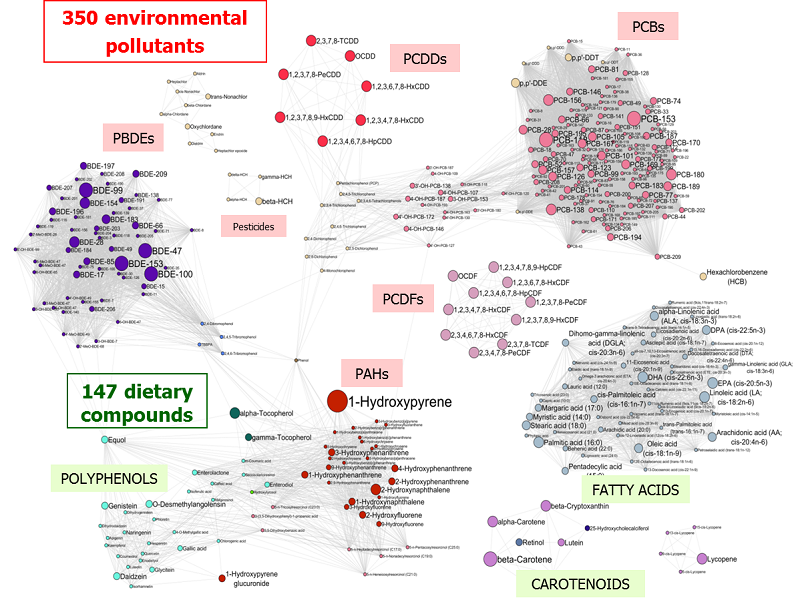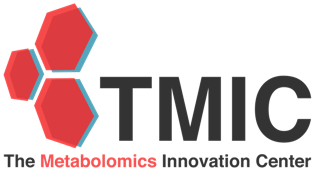8 May
2017
|
Metabolomics:
Understanding
Metabolism in
the 21st
Century
Massive
Open Online
course by the
Birmingham
Metabolomics
Training
Centre, hosted
on the
FutureLearn
platform
This 4-week course will
introduce you to
metabolomics using a
combination of videos,
short articles, discussion
points and self-assessment
quizzes. The course will
investigate the advantages
and challenges of studying
the metabolome, and the
interdisciplinary
approaches that have
driven the development of
the metabolomics field. To
facilitate your
understanding of the
subject you will have the
opportunity to interact
with your fellow learners
and the team of educators
(led by Professor Mark
Viant and Dr Warwick Dunn)
on the discussion forums.
Study time: 4 weeks, 3
hours study time per week.
The course is aimed at
final year undergraduate
science students and
research scientists but
will provide a valuable
introduction to the
metabolomics field for
scientists at any stage in
their careers.
To register for this free
online course, please
visit https://www.futurelearn.com/courses/metabolomics
|
8-11
May 2017
|
Metabolomics
Workshop
Venue: Michigan
Regional
Comprehensive
Metabolomics
Resource Core,
University of
Michigan, Ann
Arbor, MI, USA
The Michigan Regional
Comprehensive Metabolomics
Resource Core (MRC2) is
presenting a four-day
Metabolomics Workshop, May
8-11, 2017. This workshop
is intended for
investigators seeking a
solid foundation to expand
their research using
metabolomics. The 2017
program agenda will be
available in February.
Sessions include:
- Study design
- Sample collection
- Analytical methods
- Data processing,
statistical analysis,
and metabolite
identification
- Exploratory analysis
with bioinformatics
tools
- Case study
applications
- Hands-on data
analysis training,
including statistical
analysis and data
visualization
For more information,
visit http://mrc2.umich.edu/workshop
|
11-13
May 2017
|
Metabolism
in Time and
Space:
Emerging Links
to Cellular
and
Developmental
Programs
Venue: EMBL
Heidelberg,
Germany
T. Alexandrov, A.
Aulehla, P. Dorrestein,
O. Leyser, S. McKnight,
N. Perrimon
Deadlines
- Registration - 30
Mar 2017
- Abstract - 16 Feb
2017
Download
Poster
Topics
- Metabolism in time
and space
- Mechanistic insights
- crosstalk
metabolism/cellular
functions
- Metabolic control of
development
- Metabolism in growth
control
- Beyond the canonical
roles of metabolism
Latest News
- Registration is now
open. Please visit the
registration
page for more
information.
- Got something to
tweet? Say it #EESMetabolism
Stay up to date! Add
this event easily to
your calendar by
downloading the
iCal>>
Add
to calendar
Why attend?
This symposium focuses
on the role of
metabolism in
controlling cellular and
developmental programs
in its spatial and
temporal complexity.
There is a fundamental
interest in deciphering
the intricate link
between metabolism and
regulatory cellular
programs during cell
differentiation and the
development of
multicellular organisms.
Recent technological
progress has enabled us
to analyse metabolism
and metabolic activities
with spatio-temporal
resolution. This creates
unprecedented potential
to address how metabolic
state impacts on
cellular and
developmental programs.
Aims
It is the overarching
goal of this meeting to
enable interdisciplinary
discussion on the role
of metabolism in
controlling cellular and
developmental programs
in its spatial and
temporal complexity.
Special focus will be
given to discuss
emerging imaging or
biosensor technologies
and bioinformatics and
how they can enable
addressing fundamental
biological questions.
For more information,
visit http://www.embo-embl-symposia.org/symposia/2017/EES17-01/index.html
|
15-16
May 2017
|
Metabolite
identification
with the Q
Exactive and
LTQ Orbitrap
Venue: Birmingham
Metabolomics
Training
Centre, School
of
Biosciences,
University of
Birmingham,
Birmingham, UK
This two-day course will
provide a hands-on
approach to teach the
latest techniques and
tools available to perform
metabolite identification.
We will apply these tools
on the Q Exactive and LTQ
Orbitrap mass spectrometry
family. The course is
targeted towards students
and researchers who are
actively applying
metabolomics.
The course will be led by
experts in the field and
include significant
hands-on experience using
both the Q Exactive and
LTQ Orbitrap instruments
to perform:
- Data dependent
acquisition
- Data independent
acquisition
- MS/MS and MSn
data acquisition
The course will finish
with a session on the tips
and tricks from the
experts and an opportunity
to ask questions.
Bursaries are now
available for PhD students
funded by the BBSRC, MRC,
or NERC.
For further information
and registration details,
please visit http://www.birmingham.ac.uk/facilities/metabolomics-training-centre/courses/metabolite-identification.aspx
or contact bmtc@contacts.bham.ac.uk.
|
17-18
May 2017
|
Conference
on Food and
Nutritional
Metabolomics
for Health
Venue: The
Ohio State
University,
Columbus, OH,
USA
The purpose of this
two-day event is to
disseminate
state-of-the-art knowledge
in the field of food and
nutritional metabolomics
and foster networking and
collaboration among
colleagues and industry
partners.
For more information
please visit: https://discovery.osu.edu/focus-areas/foods-for-health/events/conference-2017.html.
|
29 May
to
2 June 2017
|
W4E2017
Course:
Analyze your
LCMS, GCMS and
NMR data with
Galaxy and the
Workflow4Metabolomics
e-infrastructure
Venue: Paris,
France
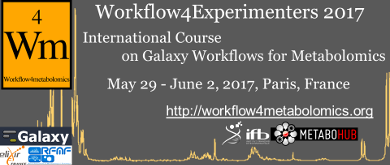
The
next
Workflow4Experimenters
international
course
(W4E2017) will
take place in
Paris (May 29
to June 2,
2017). During
this one-week
course
(entirely in
English), you
will learn how
to use Galaxy
and the W4M
infrastructure
to analyze
your own
LC-MS, GC-MS,
or NMR data
set. Morning
sessions will
be dedicated
to methodology
and tools.
Afternoon
sessions will
be devoted to
tutoring.
Invited
speakers: Tim
Ebbels
(Imperial
College),
Steffen
Neumann (IPB
Halle), and
Ralf Weber
(Birmingham
University).
Registrations:
http://workflow4metabolomics.org
Contact: contact@workflow4metabolomics.org
|
5-7
June
2017
|
Multiple
biofluid and
tissue types,
from sample
preparation to
analysis
strategies for
metabolomics
Venue: Birmingham
Metabolomics
Training
Centre, School
of
Biosciences,
University of
Birmingham,
Birmingham, UK
This three-day course will
provide a comprehensive
overview of dealing with
complex biological samples
for LC-MS analysis. The
course is targeted towards
students and researchers
who are actively applying
metabolomics in their
research. The course will
be led by experts in the
field and include:
- An overview of
quenching and
extraction strategies
for different
biological samples
- Hands-on sample
preparation using
different sample types
- Hands-on HILIC and
reversed phase LC-MS
data acquisition
- Solid phase
extraction clean up
methods
- An overview of data
analysis and
metabolite
identification
- An opportunity to
ask questions and seek
advice to prepare
samples in your own
research
Bursaries are now
available for PhD students
funded by the BBSRC, MRC,
or NERC.
For further information
and registration details,
please visit http://www.birmingham.ac.uk/facilities/metabolomics-training-centre/courses/sample-analysis.aspx
or contact bmtc@contacts.bham.ac.uk.
|
6-7
June
2017
|
Informatics
and Statistics
for
Metabolomics
(2017)
Venue: Downtown
Toronto,
Ontario,
Canada
Course Objectives
A poster announcing this
workshop can be found here
Using high-throughput
technologies, life science
researchers can identify
and characterize all the
small molecules or
metabolites in a given
cell, tissue, or organism.
The CBW course covers many
topics ranging from
understanding metabolomics
technologies, data
collection and analysis,
using pathway databases,
performing pathway
analysis, conducting
univariate and
multivariate statistics,
working with metabolomic
databases, and exploring
chemical databases.
Hands-on practical
tutorials using various
data sets and tools will
assist participants in
learning metabolomics
analysis techniques.
Participants will gain
practical experience and
skills to be able to:
- Design appropriate
metabolome-focused
experiments
- Understand the
advantages and
limitations of
metabolomic data
analysis
- Devise an
appropriate
bioinformatics
workflow for
processing and
analyzing metabolomic
data
- Apply appropriate
statistics to
undertake rigorous
data analysis
- Visualize datasets
to gain intuitive
insights into the
composition and/or
activity of their
metabolome
For more
information, visit https://bioinformatics.ca/workshops/2017/informatics-and-statistics-metabolomics-2017
|
8
June
2017
|
Metabolomics
in
Personalized
Medicine
Workshop
Venue: 18th
floor of Mount
Sinai
Hospital, 600
University
Ave, Toronto,
ON (room
number to be
finalized
closer to the
date of the
workshop)
Biocrates
and The
Metabolomics Innovation
Centre (TMIC) of the
University of Alberta are
partnering to bring you an
upcoming workshop,
Metabolomics in
Personalized Medicine:
From Theory to Practice,
to be held in Toronto on
June 8th, 2017. The
one-day workshop is being
sponsored by Biocrates and
organized by TMIC head Dr.
David Wishart, and will
feature several presenters
from diverse disciplines.
Download
Agenda
The workshop will be held
on the 18th
floor of Mount Sinai
Hospital, 600 University
Ave, Toronto, ON. (Room
number to be finalized
closer to the date of the
workshop.)
To register for the free
workshop, please email register@mpm2017.ca and include
your name, affiliation,
and areas of research
interest.
|
12-14
June
2017
|
Metabolomics
with the Q
Exactive
Venue: Birmingham
Metabolomics
Training
Centre, School
of
Biosciences,
University of
Birmingham,
Birmingham, UK
This three-day course will
introduce you to using the
Q Exactive mass
spectrometer in your
metabolomics
investigations. The course
is aimed at students and
researchers with minimal
previous experience of
applying LC-MS in
metabolomics. The course
will be led by experts in
the field and include
lectures, laboratory
sessions and computer
workshops to provide:
- An introduction to
metabolomics and using
the Q Exactive mass
spectrometer in your
studies
- Polar and non-polar
sample preparation for
profiling and targeted
studies
- Data acquisition for
profiling and targeted
studies
- Data processing and
data analysis
- Introduction to
metabolite
identification
The course will finish
with a question and answer
session with a panel of
experts.
Bursaries are now
available for PhD students
funded by the BBSRC, MRC,
or NERC.
For further information
and registration details,
please visit http://www.birmingham.ac.uk/facilities/metabolomics-training-centre/courses/q-exactive.aspx
or contact bmtc@contacts.bham.ac.uk.
|
20-23
June
2017
|
Hands-on
Data Analysis
for Metabolic
Profiling
Venue:
Imperial
International
Phenome
Training
Centre, Imperial
College London,
London, UK
This 4 day course provides
a comprehensive overview
of data analysis for
metabolic profiling
studies with data acquired
from NMR spectroscopy and
Liquid Chromatography-Mass
Spectrometry. It combines
lectures and tutorial
sessions to ensure a
thorough understanding of
the theory and practical
applications.
- Day 1: Introductory
lectures and tutorials
regarding the
pre-processing of data
acquired via NMR and
LC-MS.
- Day 2: Lectures
and tutorials
introducing
exploratory
chemometrics
approaches, including
PCA.
- Day 3: Lectures
and tutorials covering
advanced chemometrics
techniques including
PLS and Orthogonal
PLS.
- Day 4: The
next step -
computational tools to
aid metabolite
identification and
pathway analysis.
This course has been
approved by the Royal
Society of Chemistry. This
event has been awarded 20
CPD credits by the Royal
Society of Medicine in
accordance with its
current guidelines.
For more information,
visit http://www.imperial.ac.uk/imperial-international-phenome-training-centre/courses/hands-on-data-analysis-for-metabolic-profiling/
|
26-29
June
2017
|
Metabolomics
2017
Venue: Brisbane,
Australia

It is our pleasure to
invite you to the 13th
International Conference
of the Metabolomics
Society from 25-29th June,
2017 at the Brisbane
Conference and Exhibition
Centre (BCEC) in Brisbane,
Australia.
Brisbane is a vibrant,
friendly, lifestyle
city—home to leading
medical research and a
thriving industry hub,
located in the heart of
Australia’s premier
tourist region. The BCEC
is rated among the top
three convention centres
in the world, and was the
venue of the 2014 G20
Leaders Summit. It is
ideally located in the
unique riverside cultural
and lifestyle precinct at
South Bank, which is an
inner city oasis with
riverfront parkland,
rainforest pockets and
Australia’s only
city-based sand and
swimming beach as well as
Australia’s newest and
largest Gallery of Modern
Art, cafes, restaurants
and stylish shops.
The conference has the
theme of Building Bridges
and under this banner
extends its reach to the
systems biology /
genome-scale modelling
community, as well as to
the analytical chemistry /
natural products chemistry
community. In addition,
the program features
thematic streams for
advancing the field, for
food and environmental
metabolomics, and for
health and wellness. In
addition, a deeper
engagement between
researchers within the
Asia Pacific region is a
natural focus for a
conference held in
Brisbane to promote
metabolomics research,
build and strengthen
networks in the region.
We invite you to attend an
exciting scientific
program comprising 27 oral
sessions, 5 plenaries, 4
poster sessions, sponsored
luncheons, as well as
several keynote lectures
and workshops. We will
continue the successful
tradition of satellite
workshops to the
conference in the
afternoon of Sunday 25th
June and the morning of
Monday 26th June.
Additionally, we have
planned a range of social
activities, including a
welcome reception, an
early-career researcher
mixer and a conference
dinner in the iconic BCEC
Plaza Ballroom to give you
a true Aussie-style
experience.
As part of the
Metabolomics 2017
conference, the Australia
& New Zealand
Metabolomics Network
(ANZMET) has been
organizing the ANZMET
workshop. As part of the
workshop, they aim to
publish papers that arise
from the discussions
(similar to the ANZMET
conference) in the Metabolites
journal.
Brisbane is the ideal
opportunity for delegates
to enjoy a microcosm of
Australia’s iconic
experiences. World
heritage listed
rainforests, amazing
beaches, islands, wineries
and the internationally
famous Australia Zoo—home
of the crocodile hunter—are
all easily accessible
within an hour of the
city. You can even do day
trips to the Barrier Reef
from Brisbane.
On behalf of the Local
Organising Committee and
the Metabolomics Society
Board we are excited to
once again invite you to
Metabolomics 2017—we
are looking forward to
welcoming you down under!
Prof. Melissa
Fitzgerald, School of
Agriculture and Food
Sciences &
Dr. Horst Joachim
Schirra, Centre for
Advanced Imaging,
The University of
Queensland, Brisbane,
Australia
For more information,
visit http://metabolomics2017.org/.
|
2-5
Jul 2017
|
28th
Pharmaceutical
and Biomedical
Analysis
Conference
(PBA 2017)
Venue: San
Pablo CEU
University,
Madrid, Spain
It is our great pleasure
to invite you to the 28th
Pharmaceutical and
Biomedical Analysis
Conference (PBA 2017) that
will take place in MADRID
at San Pablo CEU
University on 2-5 July
2017.
The conference will cover
all aspects of
pharmaceutical and
biomedical analysis, with
particular emphasis on
bringing Pharma industry
to meet Academia.
Key representatives in all
areas of PHARMA INDUSTRY:
R&D and quality
control, both for small
molecules and
biopharmaceuticals will be
invited to present their
developments and pending
challenges. In addition,
as would be expected,
“omics” methodologies,
especially METABOLOMICS,
will occupy a special
place.
The purpose of PBA 2017 is
to bring together people
from Industry,
Universities, Control
Laboratories and Hospitals
to discuss the current
status of analytical
techniques including
instrumental applications
and theoretical
developments. Plenary and
Keynote Lectures will be
given by internationally
recognized invited
speakers. An attractive
program of social events
will also be arranged
during the symposium.
For further information,
visit https://www.regonline.com/builder/site/Default.aspx?EventID=1890431.
|
16-21
Jul 2017
|
2017
UAB
Metabolomics
Workshop
Venue: Birmingham,
Alabama, USA
The 2017 UAB Metabolomics
Workshop will be held July
16-21 in Birmingham,
Alabama. There will be
slots for 40 attendees. We
particularly encourage
graduate students and
postdoctoral and clinical
fellows. Those at US
universities and
institutes may qualify for
support from NIH funding.
We also encourage
applications from all
levels of faculty and
other research personnel
as well as all genders and
ethnicities.
The themes in this 5th
year of the workshop are:
- Design of a
metabolomics
experiment
- Sample stability and
extraction methods
- Analytical systems
(nuclear magnetic
resonance and gas- and
liquid
chromatography-mass
spectrometry)
- Targeted
metabolomics
- Untargeted
metabolomics
- Quantitative
metabolomics
- Pre-processing of
analytical data
(Mzmine 2 and
XCMSonline, and
Chenomx)
- Statistical analysis
of the data
(MetaboAnalyst, Simca,
SAS)
- Metabolite databases
(METLIN, HMDB,
LIPIDMAPS, PubChem,
ChemSpider)
- Identification of
metabolites
(MetaboSearch, MSMS
analysis)
- Metabolite pathway
analysis (Mummichog,
KEGG, GeneGo,
Ingenuity)
- Integrated –omics
(MetabNet, 3Omics)
- Advanced elective
sessions (Imaging mass
spectrometry, isotope
ratio outlier
analysis, Ion
mobility, Command line
and R programs)
- Electives will allow
attendees to fine tune
their training
experience
Those interested in
applying should go to http://www.uab.edu/proteomics/metabolomics/workshop/workshop_july_2017.php.
Any questions about the
workshop should be
directed to sbarnes@uab.edu.
|
21 Jul 2017
|
Introduction
to
Metabolomics
for the
Clinical
Scientist
Venue: Birmingham
Metabolomics
Training
Centre, School
of
Biosciences,
University of
Birmingham,
Birmingham, UK
This one-day course in
partnership with the
Phenome Centre Birmingham
will provide clinicians
with an overview of the
metabolomics pipeline,
highlighting the benefits
of the technique to the
medical field. The course
will provide an:
- Introduction to
experimental design
and sample collection
- An overview of both
the analytical and
computational methods
applied in the field
- Case studies and
panel discussions with
the experts
Bursaries are now
available for PhD students
funded by the BBSRC, MRC,
or NERC.
For further information
and registrations details,
please visit http://www.birmingham.ac.uk/facilities/metabolomics-training-centre/courses/introduction-metabolomics.aspx
or contact bmtc@contacts.bham.ac.uk.
|
11-15
Sep 2017
|
School
on
"Cloud-based
Metabolomics
Data Analysis
and
Collaboration"
Venue: Building
2 of the
Technology
Park of
Sardinia
Pula,
Sardinia,
Italy
Metabolomics is a well
established -omics science
whose growth is bringing
about new challenges.
Systematic studies and
integration with other
data sources are resulting
in ever larger dataset
sizes; production
applications require
superior computational
scalability of analysis
techniques; complex,
multi-step workflows make
study reproducibility more
challenging.
At the same time, cloud
computing technologies are
extending their
functionality and provide
practical solutions for
many of these problems.
In this School students
will have the opportunity
to learn about current
topics in metabolomics,
with a slant on the
integration of cloud
computing technologies
where they are beneficial
to the effectiveness and
efficiency of research and
analysis work. Top-level
lecturers in the field
will provide their insight
and will be available for
the entire duration of the
school, with ample
opportunity for
interaction with the
students. Importantly, the
School will also include
practical sessions where
students can put their new
knowledge into practice
under the guidance of
tutors and run analyses
using the new PhenoMeNal
cloud-based metabolomics
platform.
For more information,
visit http://cloudmet2017.crs4.it/.
|
20-23 Sep
2017
|
MOVISS:
Bio and Data
Venue: Vorau,
Austria
A problem driven meeting
aimed at bioinformaticians,
biochemists,
statisticians and
those who handle and
interpret metabolomics
data
When: Sept 20-23, 2017
Where: Vorau, Austria
To register and for more
information, go to www.MOVISS.eu,
and follow us on Twitter @MOVISSmeet
Not just an ordinary
conference, where people
present work they have
already done, MOVISS is
centered on identifying
and problem solving
current challenges
relating to metabolomics
data handling by getting
everyone in the room
discussing it. Want to be
at the forefront of
solving some of the major
bottlenecks in the
Metabolomics Revolution –
see you at MOVISS!
A follow up R Summer
School will be held on
September 25-27, 2017 in
Vorau, Austria.
|
12-13
Oct 2017
|
Quality
Assurance and
Quality
Control in
Metabolomics
Venue:
Birmingham
Metabolomics
Training
Centre, School
of
Biosciences,
University of
Birmingham,
Birmingham, UK
This two-day course will
provide a comprehensive
overview of the
application of quality
assurance (QA) and quality
control (QC) in metabolic
phenotyping. The course is
aimed at students and
researchers who are
actively working in the
field. Experts who have
developed the application
of QA and QC procedures
within the field will lead
the course. It will
include both theoretical
and practical components
to:
- Introduce QA and QC
in metabolic
phenotyping
- The application of
QA and QC in
untargeted and
targeted studies
- Preparation of QCs
and data acquisition
- Data processing and
reporting standards
The course will finish
with a question and answer
session with a panel of
experts.
Bursaries are now
available for PhD students
funded by the BBSRC, MRC,
or NERC.
For further information
and registration details,
please visit http://www.birmingham.ac.uk/facilities/metabolomics-training-centre/courses/quality-phenotyping.aspx
or contact bmtc@contacts.bham.ac.uk.
|
6-8
Nov 2017
|
Metabolomics
with the Q
Exactive
Venue: Birmingham
Metabolomics
Training
Centre, School
of
Biosciences,
University of
Birmingham,
Birmingham, UK
This three-day course will
introduce you to using the
Q Exactive mass
spectrometer in your
metabolomics
investigations. The course
is aimed at students and
researchers with minimal
previous experience of
applying LC-MS in
metabolomics. The course
will be led by experts in
the field and include
lectures, laboratory
sessions and computer
workshops to provide:
- An introduction to
metabolomics and using
the Q Exactive mass
spectrometer in your
studies
- Polar and non-polar
sample preparation for
profiling and targeted
studies
- Data acquisition for
profiling and targeted
studies
- Data processing and
data analysis
- Introduction to
metabolite
identification
The course will finish
with a question and answer
session with a panel of
experts.
Bursaries are now
available for PhD students
funded by the BBSRC, MRC,
or NERC.
For further information
and registration details,
please visit http://www.birmingham.ac.uk/facilities/metabolomics-training-centre/courses/q-exactive.aspx
or contact bmtc@contacts.bham.ac.uk.
|
1 Dec
2017
|
Introduction
to
Metabolomics
for the
Clinical
Scientist
Venue: Birmingham
Metabolomics
Training
Centre, School
of
Biosciences,
University of
Birmingham,
Birmingham, UK
This one-day course in
partnership with the
Phenome Centre Birmingham
will provide clinicians
with an overview of the
metabolomics pipeline,
highlighting the benefits
of the technique to the
medical field. The course
will provide an:
- Introduction to
experimental design
and sample collection
- An overview of both
the analytical and
computational methods
applied in the field
- Case studies and
panel discussions with
the experts
Bursaries are now
available for PhD students
funded by the BBSRC, MRC,
or NERC.
For further information
and registrations details,
please visit http://www.birmingham.ac.uk/facilities/metabolomics-training-centre/courses/introduction-metabolomics.aspx
or contact bmtc@contacts.bham.ac.uk.
|
6-8
Dec 2017
|
Multiple
biofluid and
tissue types,
from sample
preparation to
analysis
strategies for
metabolomics
Venue: Birmingham
Metabolomics
Training
Centre, School
of
Biosciences,
University of
Birmingham,
Birmingham, UK
This 3-day course will
provide a comprehensive
overview of dealing with
complex biological samples
for LC-MS analysis. The
course is targeted towards
students and researchers
who are actively applying
metabolomics in their
research. The course will
be led by experts in the
field and include:
- An overview of
quenching and
extraction strategies
for different
biological samples
- Hands-on sample
preparation using
different sample types
- Hands-on HILIC and
reversed phase LC-MS
data acquisition
- Solid phase
extraction clean up
methods
- An overview of data
analysis and
metabolite
identification
- An opportunity to
ask questions and seek
advice to prepare
samples in your own
research
Bursaries are now
available for PhD students
funded by the BBSRC, MRC,
or NERC.
For further information
and registration details,
please visit http://www.birmingham.ac.uk/facilities/metabolomics-training-centre/courses/sample-analysis.aspx
or contact bmtc@contacts.bham.ac.uk.
|
11-13
Dec 2017
|
MetaboMeeting
2017
Venue: University
of Birmingham,
UK
Make plans to attend the
10th successful
MetaboMeeting conference.
The meeting will bring
together research
scientists and
practitioners from all
areas of application and
development of metabolic
profiling, covering a wide
range of experience from
early career scientists to
experts from throughout
the international
metabolomics field.
MetaboMeeting 2017
continues to highlight the
work of its attendees
through both oral platform
presentation and poster
sessions.
The deadline for oral
presentation abstracts is
15th July 2017.
The deadline for poster
abstracts is 1st
October 2017.
For further information,
visit http://metabomeeting2017.thempf.org/.
|
14-15
Dec 2017
|
Metabolite
identification
with the Q
Exactive and
LTQ Orbitrap
Venue: Birmingham
Metabolomics
Training
Centre, School
of
Biosciences,
University of
Birmingham,
Birmingham, UK
This two-day course will
provide a hands-on
approach to teach the
latest techniques and
tools available to perform
metabolite identification.
We will apply these tools
on the Q Exactive and LTQ
Orbitrap mass spectrometry
family. The course is
targeted towards students
and researchers who are
actively applying
metabolomics.
The course will be led by
experts in the field and
include significant
hands-on experience using
both the Q Exactive and
LTQ Orbitrap instruments
to perform:
- Data dependent
acquisition
- Data independent
acquisition
- MS/MS and MSn
data acquisition
The course will finish
with a session on the tips
and tricks from the
experts and an opportunity
to ask questions.
Bursaries are now
available for PhD students
funded by the BBSRC, MRC,
or NERC.
For further information
and registration details,
please visit http://www.birmingham.ac.uk/facilities/metabolomics-training-centre/courses/metabolite-identification.aspx
or contact bmtc@contacts.bham.ac.uk.
|


